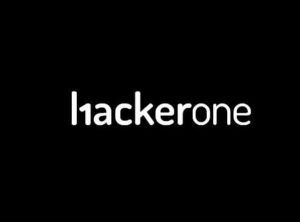Daily Vulnerability Trends: Wed Aug 02 2023

| CVE NAME | CVE Description |
| CVE-2023-24489 | A vulnerability has been discovered in the customer-managed ShareFile storage zones controller which, if exploited, could allow an unauthenticated attacker to remotely compromise the customer-managed ShareFile storage zones controller. |
| CVE-2023-3519 | Unauthenticated remote code execution |
| CVE-2022-27600 | No description provided |
| CVE-2023-2868 | A remote command injection vulnerability exists in the Barracuda Email Security Gateway (appliance form factor only) product effecting versions 5.1.3.001-9.2.0.006. The vulnerability arises out of a failure to comprehensively sanitize the processing of .tar file (tape archives). The vulnerability stems from incomplete input validation of a user-supplied .tar file as it pertains to the names of the files contained within the archive. As a consequence, a remote attacker can specifically format these file names in a particular manner that will result in remotely executing a system command through Perl’s qx operator with the privileges of the Email Security Gateway product. This issue was fixed as part of BNSF-36456 patch. This patch was automatically applied to all customer appliances. |
| CVE-2023-20593 | An issue in “Zen 2” CPUs, under specific microarchitectural circumstances, may allow an attacker to potentially access sensitive information. |
| CVE-2023-32693 | Decidim is a participatory democracy framework, written in Ruby on Rails, originally developed for the Barcelona City government online and offline participation website. The external link feature is susceptible to cross-site scripting. This allows a remote attacker to execute JavaScript code in the context of a currently logged-in user. An attacker could use this vulnerability to make other users endorse or support proposals they have no intention of supporting or endorsing. The problem was patched in versions 0.27.3 and 0.26.7. |
| CVE-2022-0543 | It was discovered, that redis, a persistent key-value database, due to a packaging issue, is prone to a (Debian-specific) Lua sandbox escape, which could result in remote code execution. |
| CVE-2019-6802 | CRLF Injection in pypiserver 1.2.5 and below allows attackers to set arbitrary HTTP headers and possibly conduct XSS attacks via a %0d%0a in a URI. |
| CVE-2023-34090 | Decidim is a participatory democracy framework, written in Ruby on Rails, originally developed for the Barcelona City government online and offline participation website. Decidim uses a third-party library named Ransack for filtering certain database collections (e.g., public meetings). By default, this library allows filtering on all data attributes and associations. This allows an unauthenticated remote attacker to exfiltrate non-public data from the underlying database of a Decidim instance (e.g., exfiltrating data from the user table). This issue may lead to Sensitive Data Disclosure. The problem was patched in version 0.27.3. |
| CVE-2023-3817 | Issue summary: Checking excessively long DH keys or parameters may be very slow. Impact summary: Applications that use the functions DH_check(), DH_check_ex() or EVP_PKEY_param_check() to check a DH key or DH parameters may experience long delays. Where the key or parameters that are being checked have been obtained from an untrusted source this may lead to a Denial of Service. The function DH_check() performs various checks on DH parameters. After fixing CVE-2023-3446 it was discovered that a large q parameter value can also trigger an overly long computation during some of these checks. A correct q value, if present, cannot be larger than the modulus p parameter, thus it is unnecessary to perform these checks if q is larger than p. An application that calls DH_check() and supplies a key or parameters obtained from an untrusted source could be vulnerable to a Denial of Service attack. The function DH_check() is itself called by a number of other OpenSSL functions. An application calling any of those other functions may similarly be affected. The other functions affected by this are DH_check_ex() and EVP_PKEY_param_check(). Also vulnerable are the OpenSSL dhparam and pkeyparam command line applications when using the “-check” option. The OpenSSL SSL/TLS implementation is not affected by this issue. The OpenSSL 3.0 and 3.1 FIPS providers are not affected by this issue. |
| CVE-2023-35078 | Ivanti Endpoint Manager Mobile (EPMM), formerly MobileIron Core, through 11.10 allows remote attackers to obtain PII, add an administrative account, and change the configuration because of an authentication bypass, as exploited in the wild in July 2023. A patch is available. |
| CVE-2023-37979 | Unauth. Reflected Cross-Site Scripting (XSS) vulnerability in Saturday Drive Ninja Forms Contact Form plugin <= 3.6.25 versions. |
| CVE-2023-38386 | No description provided |
| CVE-2023-38393 | No description provided |
| CVE-2023-35081 | No description provided |
A considerable amount of time and effort goes into maintaining this website, creating backend automation and creating new features and content for you to make actionable intelligence decisions. Everyone that supports the site helps enable new functionality.
If you like the site, please support us on “Patreon” or “Buy Me A Coffee” using the buttons below
To keep up to date follow us on the below channels.

![GoPhish Login Page Detected - 34[.]133[.]186[.]252:4444 3 gophish](https://www.redpacketsecurity.com/wp-content/uploads/2024/04/gophish-300x90.png)
